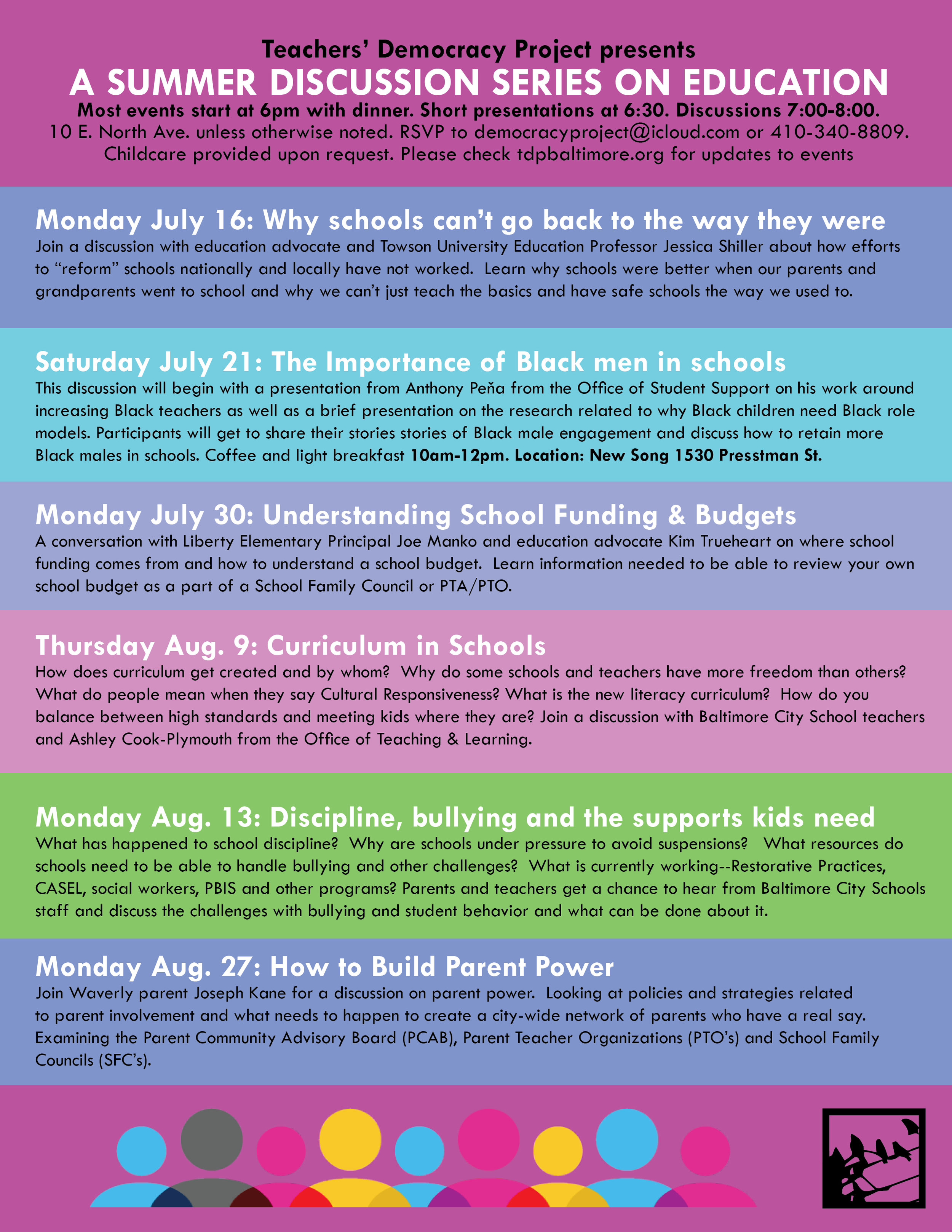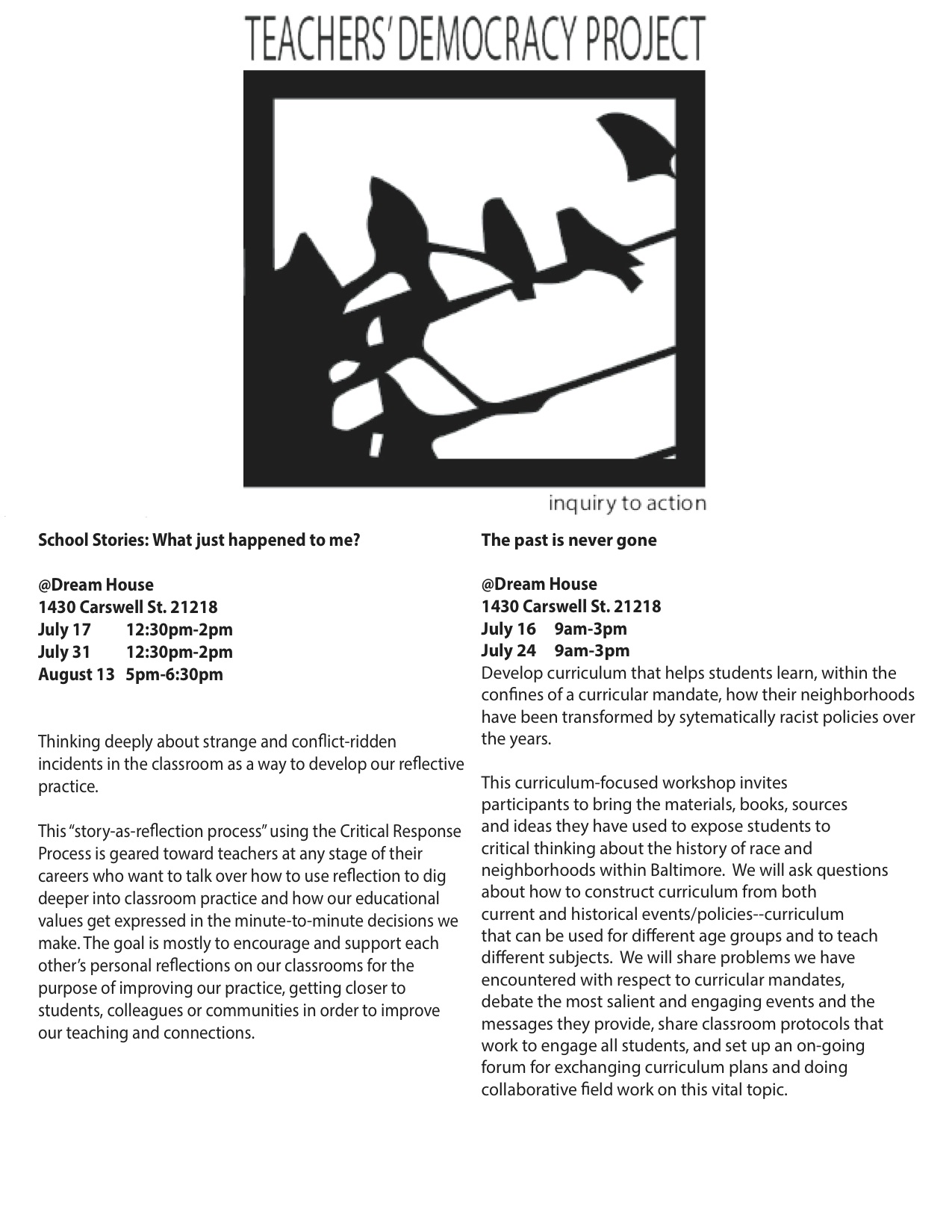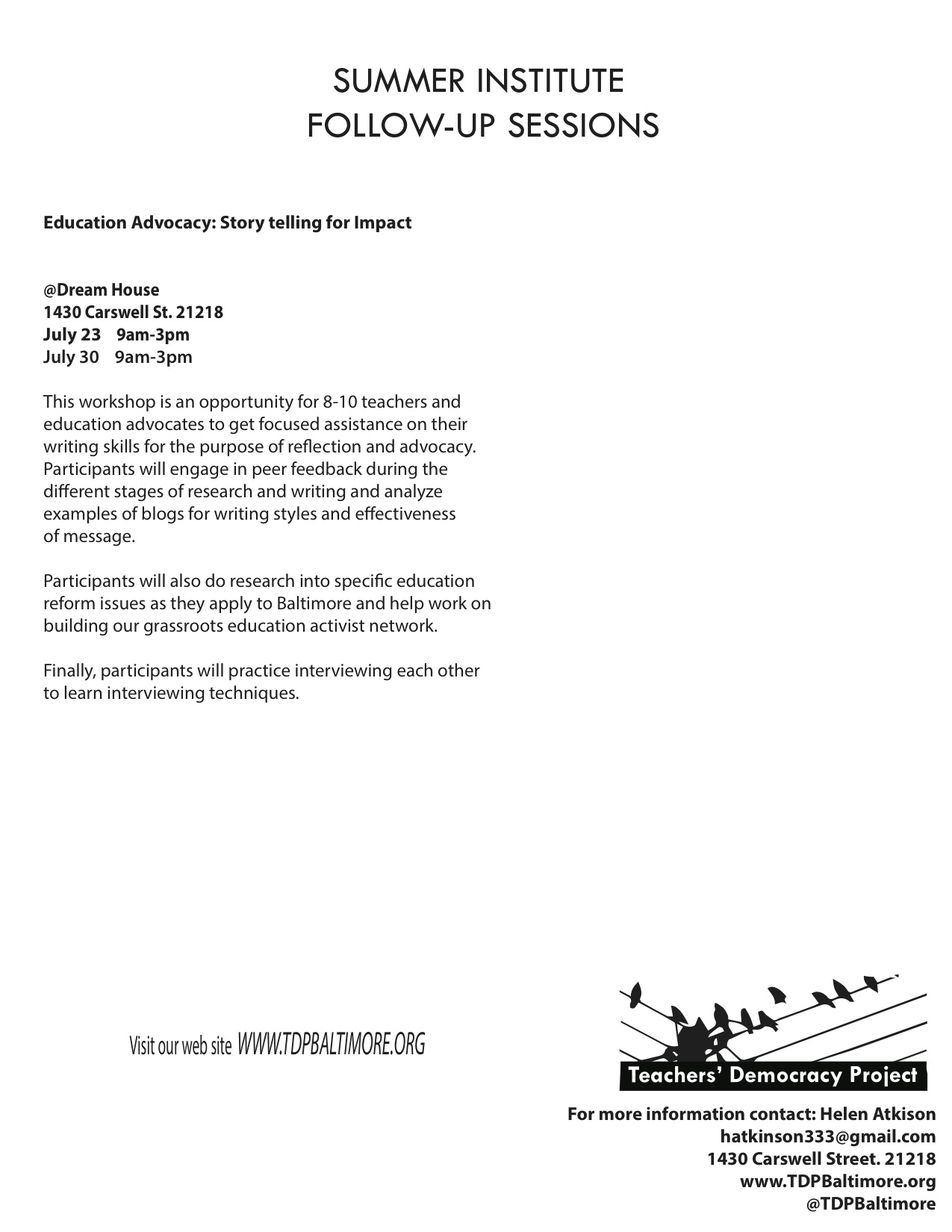Treat neighborhood schools like charters
By Helen Atkinson, Corey Gaber, Ben Dalbey
In the wake of a contentious debate in Annapolis this spring that featured a bill that gives charter school operators more control over their schools (while principal autonomy was rolled back at struggling traditional schools), a show down over supplemental education funding, and a great deal of rhetorical debate around "autonomy," "choice," "accountability" and "successful" schools, we are wondering where the neighborhood schools are left.
Is the implication that teachers and principals in traditional schools are fundamentally different from principals and teachers in higher status schools? Would they fail to rise to the occasion if they were given the same deal that charters have?
See Op-Ed in Baltimore Sun here.
Ask any principal or teacher what they would do if only they had the freedom to follow their beliefs; it's a safe bet they have a plan. Ask any community member who has experienced the vicissitudes of neighborhood institutions over time whether they would support a school where they could help make decisions and share responsibility for the results, and the answer would be a firm "of course."
Why not offer traditional schools and their communities the same autonomy, freedom from onerous constraints, predictability in their funding and ability to make promises that they can keep to current and prospective teachers, children and families?
All of our school communities should have the chance to write the equivalent of a charter application that establishes a community-wide commitment to a belief-based approach to curriculum and pedagogy. What if the schools that muster this support were, as a result, afforded the same per pupil funding as charters and had the ability to select additional services (beyond a reasonable set of services that ensure equity, transparency and legality) to buy from central office? What if all schools could select whether to administer "benchmark" tests in addition to those mandated by the state? What if, based on these fresh chances and fresh sense of control, these schools could attract the most talented principals of their own choosing, who could in turn attract and keep excellent existing and new teachers? Will any superintendent or school board ever be brave and supportive enough to relinquish a portion of their power in service of democratic community control?
The rhetorical argument used by charter advocates is that only charter schools have the capacity to take on what they see as an extra load of accountability. We argue that charter schools in Baltimore are perhaps subject to somewhat less routine scrutiny (process-based accountability) than traditional schools and thus have an unfair edge. To the extent that they are subject to district rules, they serve as proverbial canaries-in-the-mine for the inefficiencies that all schools experience. Charters are among a subset of schools that have privileges not shared by all public schools; to name a few: the ability to select curriculum without restraint; a per pupil funding amount that gives them greater financial control; an ability to carry forward all left-over money at year's end, thus making long-term financial planning a possibility; and an ability to opt out of various district-mandated testing regimes. No one from the central office is making unannounced visits to charter school classrooms to ensure that teachers are on page 57 of lesson 31 on exactly April 22nd. Charter school spending is not frozen arbitrarily in April. They get to select the central office services they want to pay for. One can call these autonomies, or one can call them the reduction of process accountability.
Even the end-point or outcomes-based accountability that charters do deal with every three to five years in the form of a renewal application and a "school effectiveness review" is probably no more onerous and somewhat more predictable than the review process currently faced by many other schools. Non-charter schools face their reviews without the support of an independent operator to run interference between the school and district. Charters are subject to fewer of the unpredictable threats of closure faced by many other schools under No Child Left Behind.
Of course, politically speaking, this is a difficult stance to take. In an era when only few schools are immune from these threats of sanctions, charters — and other high-status public and private schools — are oases of relative predictability and security. Why would they want to give up their edge? People will say it cannot be done. People will say we do not have the talent pool. People will say that communities cannot be trusted.
Let us not make the mistake of thinking that what is good for the charter school goose is not also good for the traditional school gander.
Helen Atkinson is director of the Teachers' Democracy Project and is a former charter operator in Baltimore; democracyproject@icloud.com. Corey Gaber is a 6th grade teacher at a charter school in Baltimore; cbgaber@gmail.com. Ben Dalbey is a parent of two Baltimore city public schools children and an early childhood teacher; bendalbey@yahoo.com.












